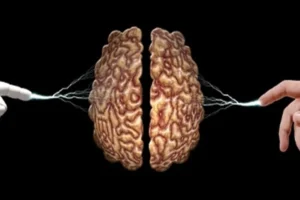Prof. Dr. Rashida Sultana
Professor
Department of Obstetrics & Gynae
Azra Naheed Medical College, Lahore
The Department of Gynecology at CMAT&RH, Azra Naheed Medical College, organized a two-day symposium for Research Week 2024. This event was conducted in collaboration with the Association of Mothers and Newborns under the Office of Research Innovation and Commercialization of Superior University, Lahore. Guest speakers from Karachi and Lahore facilitated the symposium participants from various medical colleges of Lahore.

Maternal and neonatal morbidity and mortality are crucial health challenges in developing countries like Pakistan. The CEMONC (Comprehensive Emergency Obstetric and Newborn Care) Training Symposium.
Maternal and newborn mortality remains a significant global health challenge. In Pakistan, despite significant strides in healthcare, these rates continue to be alarming. The CEMONC (Comprehensive Emergency Obstetric and Newborn Care) training symposium provided valuable insights by equipping doctors with the vital skills to effectively manage obstetric and newborn emergencies. This blog post will highlight the key takeaways from the symposium's first day, focusing on the latest evidence-based guidelines to enhance emergency care.
Facility Readiness for Emergency Care
Feto-maternal outcomes are better in well-equipped healthcare facilities that can handle obstetric emergencies proficiently. Essential medications and surgical supplies, well-trained healthcare professionals, Effective communication systems, proficient laboratory and blood bank services, and adequate transportation facilities are crucial to prevent delays.
Perinatal Mental Health and Mental Health screening in Pregnancy
A mother's physical and mental well-being is vital for a healthy baby. So, a detailed history of women should be taken to identify the risk factors that can impair maternal psychological well-being, which must be addressed in the prenatal, antenatal, and postnatal periods.
Respectful Maternal Care
Respectful maternity care to ensure a pleasant birth experience for a mother with care, love, dignity, and respect is very important for her mental health. It includes informed decision-making, pain relief, privacy, confidentiality and support from healthcare providers
Preterm Birth Management
The birth of a baby before 37 completed weeks of gestation is called pre-term birth. Such babies are at risk of admission to the neonatal ICU. Administration of corticosteroids in the antenatal period in suspected cases of preterm delivery can improve fetal lung maturity. Additionally, timely referral of such cases to healthcare facilities equipped with neonatal resuscitation and care is essential.
Evidence-Based Cesarean Section Techniques
Cesarean section is a mode of delivery of the baby. Practicing safe, evidence-based techniques while performing a cesarean section can prevent surgery-related complications.
Essential Newborn Care and Neonatal Resuscitation
Immediate and effective newborn care and resuscitation” can improve the survival rate of newborns. It includes:
As a moderator, I found the CEMONC training symposium a truly enlightening experience. lectures and hands-on training sessions by expert subject specialists reinforced evidence-based guidelines and protocols. A multidisciplinary team approach for maternal and newborn care was emphasized. It was very inspiring and encouraging to witness the dedication of facilitators as well as learners to uplift the standards of health care in Pakistan in limited resources.
The CEMONC symposium is a significant step in training junior doctors and updating the knowledge of senior doctors. It addressed essential aspects of maternal and newborn care. Such training sessions on a regular basis may help equip health care providers with the latest knowledge and skills and enable them to provide quality care to mothers and newborns.




